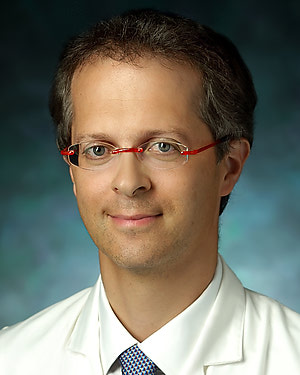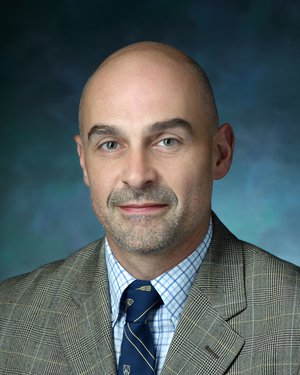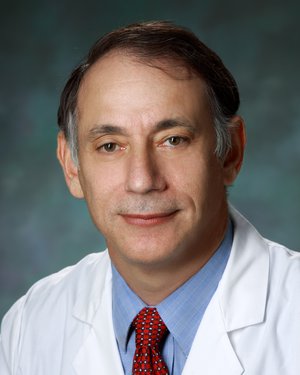Research Lab Results
-
Adamo Cardiac Immunology Lab
Over the last few decades, a growing body of evidence has shown that the immune system is intimately connected with cardiac development, function and adaptation to injury. However, there is still much to learn and currently there are no immunomodulatory treatments to prevent or treat heart dysfunction. The Adamo Lab aims to study applied immunology in the context of cardiac function and dysfunction, to both elucidate fundamental properties of the immune systems and to develop novel therapeutic options for the rapidly growing number of patients living with heart disease. -
Adult Cardiac Catheterization Laboratory
Our group is interested in the evaluation of basic pathophysiology in patients undergoing cardiac procedures, development and evaluation of new therapeutic strategies, and improving patient selection and outcomes following interventional procedures.
-
Cardiac Surgery Research Lab
Founded in 1942 by surgeon Alfred Blalock and surgical technician Vivien Thomas, the Cardiac Surgery Research Lab at The Johns Hopkins Hospital serves not only to spearhead discovery and innovation in cardiothoracic surgery, but also to train future leaders in the field. Active areas of investigation include the development of novel, nanoparticle-based therapeutics to mitigate acute lung injury, avoid neurological injury during cardiac surgery, and improve organ preservation during heart and lung transplantation. The lab is also active in a variety of clinical research projects aimed at improving outcomes for our patients. Equally important, the lab plays a critical role in training residents for impactful careers in academic cardiothoracic surgery. Medical students, residents, and fellows receive hands-on simulation experiences to hone surgical skills outside of the operating room. The lab also serves as a training ground to develop research and investigation skills as trainees learn methods of advanced statistical analysis and academic writing. Special programs for undergraduates and medical students help develop their passion for cardiac surgery and surgical research, giving unique opportunities to young talent. -
Center for Research on Cardiac Intermediate Filaments
The CRCIF was established to foster collaborative efforts aimed at elucidating the role of intermediate filaments (IFs) in the heart. Intermediate filaments constitute a class of cytoskeletal proteins in metazoan cells, however, different from actin microfilaments and tubulin microtubules, their function in cardiac cells is poorly understood. Unique from the other two components of the cytoskeleton, IFs are formed by cell type-specific proteins. Desmin is the main component of the IFs in the cardiac myocytes. We measured the consistent induction of desmin post-translational modifications (PTMs, such as phosphorylation, etc.) in various clinical and experimental models of heart failure. Therefore, one of our main focuses is to determine the contribution of desmin PTMs to the development of heart failure in different animal and clinical models. Active Projects: • Quantification of desmin PTM-forms in different forms of heart failure at the peptide level using mass spectrometry • Functional assessment of the role of desmin PTMs in heart failure development using single site mutagenesis and biophysical methods • Molecular characterization of desmin preamyloid oligomers using mass spectrometry, in vitro and in vivo imaging • Assessment of the diagnostic and pharmacological value of desmin PTMs in heart failure development -
Pediatric Cardiology Core Imaging Laboratory
The lab’s assets include three MRI systems available for pediatric studies, cardiac imaging processing, cardiovascular imaging and therapeutic ultrasound. A robust echocardiogram program conducts 10,000 transthoracic echocardiograms and 1,300 fetal echocardiograms per year, and maintains a database with 10 years of data.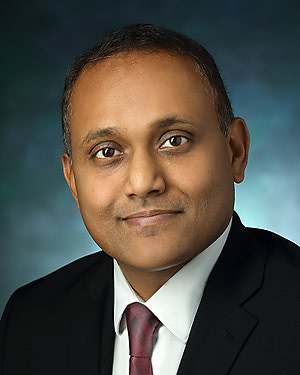
-
The Atlantic Cardiovascular Patient Outcomes Research Team - Atlantic C-PORT
Our research is centered on the safety, efficacy and outcomes of PCI performed at hospitals without on-site cardiac surgery. Active projects: C-PORT Randomized Studies and Registries; New Jersey Angioplasty Demonstration Project; InCar-decision support tools for performance of PCI at hospitals without on-site cardiac surgery. For more information please visit Cport.org.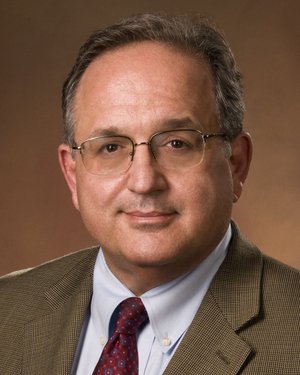
-
CORE-320 Multicenter Trial Lab
The central theme of the CORE-320 Multicenter Trial Lab’s research is to support the Coronary Artery Evaluation Using 320-Row Multidetector CT Angiography (CORE 320) study, a multi-center multinational diagnostic study with the primary objective to evaluate the diagnostic accuracy of 320-MDCT for detecting coronary artery luminal stenosis and corresponding myocardial perfusion deficits in patients with suspected CAD compared with the reference standard of conventional coronary angiography and SPECT myocardial perfusion imaging. Armin Arbab-Zadeh, MD, PhD, is an associate professor of medicine at the Johns Hopkins University School of Medicine and Director of Cardiac Computed Tomography in the Division of Cardiology at the Johns Hopkins Hospital in Baltimore. Research Areas: coronary/cardiac imaging, coronary risk prediction, heart attack prevention, cardiac computed tomography, coronary circulation and disease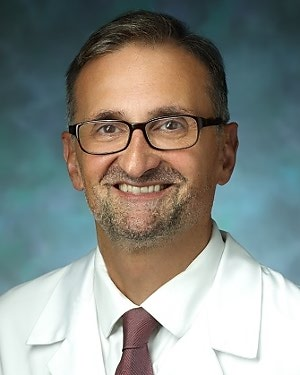
-
Cardiology Bioengineering Laboratory
The Cardiology Bioengineering Laboratory, located in the Johns Hopkins Hospital, focuses on the applications of advanced imaging techniques for arrhythmia management. The primary limitation of current fluoroscopy-guided techniques for ablation of cardiac arrhythmia is the inability to visualize soft tissues and 3-dimensional anatomic relationships. Implementation of alternative advanced modalities has the potential to improve complex ablation procedures by guiding catheter placement, visualizing abnormal scar tissue, reducing procedural time devoted to mapping, and eliminating patient and operator exposure to radiation. Active projects include • Physiological differences between isolated hearts in ventricular fibrillation and pulseless electrical activity • Successful ablation sites in ischemic ventricular tachycardia in a porcine model and the correlation to magnetic resonance imaging (MRI) • MRI-guided radiofrequency ablation of canine atrial fibrillation, and diagnosis and intervention for arrhythmias • Physiological and metabolic effects of interruptions in chest compressions during cardiopulmonary resuscitation Henry Halperin, MD, is co-director of the Johns Hopkins Imaging Institute of Excellence and a professor of medicine, radiology and biomedical engineering. Menekhem M. Zviman, PhD is the laboratory manager. -
Chulan Kwon Laboratory
The C. Kwon Lab studies the cellular and molecular mechanisms governing heart generation and regeneration. The limited regenerative capacity of the heart is a major factor in morbidity and mortality rates: Heart malformation is the most frequent form of human birth defects, and cardiovascular disease is the leading cause of death worldwide. Cardiovascular progenitor cells hold tremendous therapeutic potential due to their unique ability to expand and differentiate into various heart cell types. Our laboratory seeks to understand the fundamental biology and regenerative potential of multi-potent cardiac progenitor cells – building blocks used to form the heart during fetal development — by deciphering the molecular and cellular mechanisms that control their induction, maintenance, and differentiation. We are also interested in elucidating the maturation event of heart muscle cells, an essential process to generate adult cardiomyocytes, which occurs after terminal differentiation of the progenitor cells. We believe this knowledge will contribute to our understanding of congenital and adult heart disease and be instrumental for stem cell-based heart regeneration. We have developed several novel approaches to deconstruct the mechanisms, including the use of animal models and pluripotent stem cell systems. We expect this knowledge will help us better understand heart disease and will be instrumental for stem-cell-based disease modeling and interventions for of heart repair. Dr. Chulan Kwon is an assistant professor of medicine at the Johns Hopkins University Heart and Vascular Institute. -
Donald Shaffner Lab
Work in the Donald Shaffner Lab investigates several topics within critical care medicine. Our team conducts research on the mechanisms involved in neurologic injury from global ischemia as a result of cardiac arrest and resuscitation. We also study neurologic outcomes of pediatric patients who experience cardiac arrest.

